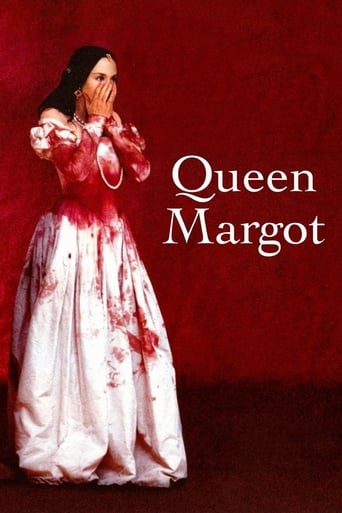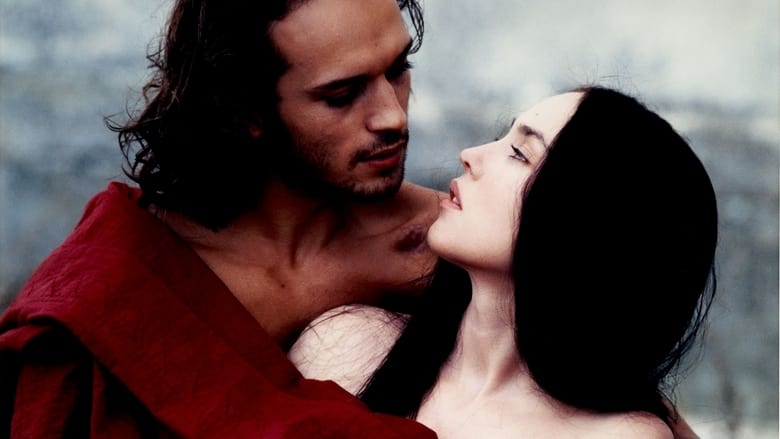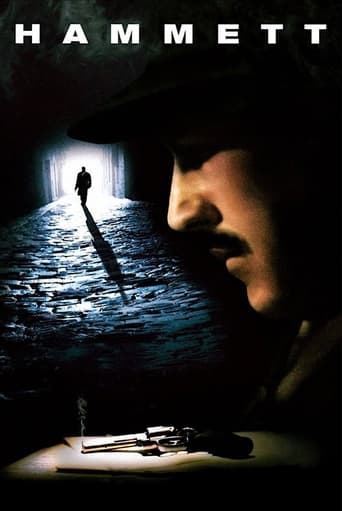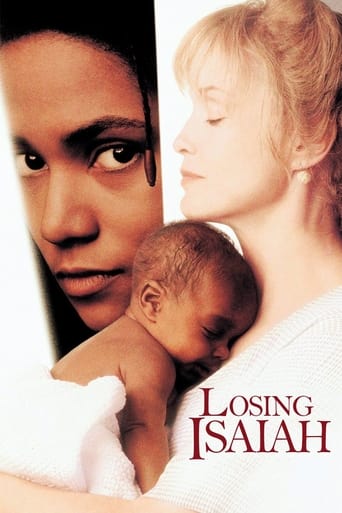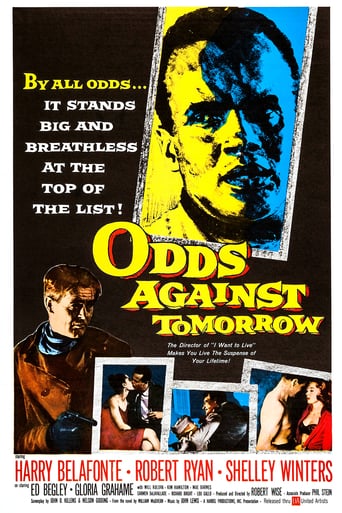Queen Margot (1994)
Paris, Kingdom of France, August 18, 1572. To avoid the outbreak of a religious war, the Catholic princess Marguerite de Valois, sister of the feeble King Charles IX, marries the Huguenot King Henry III of Navarre.
Watch Trailer
Cast


Similar titles
Reviews
In truth, there is barely enough story here to make a film.
Blistering performances.
Watching it is like watching the spectacle of a class clown at their best: you laugh at their jokes, instigate their defiance, and "ooooh" when they get in trouble.
Blistering performances.
One of the rare movies that really give us a chance to look into a different world, a different age and let us wonder how those times really were and how it would be to live in those parts of history. And, last but not least, we get on top an absolutely fabulous Isabelle Adjani, playing Marguerite de Valois dite La Reine Margot, the sister of the Catholic King Charles IX.The game takes place in the night of August 24, 1572, known as the Massacre of St. Bartholomew (Massacre de la Saint-Barthélemy). A few days after the wedding day of the king's sister Margot to the Protestant Henry III. of Navarre Catholics killed thousands of Huguenots in Paris and in all of France. War, intrigues, poison, incest, a war of religious and political powers served with fantastic cinematography and lots of blood and fine scenes taking place in a European royal Court. This is a real masterpiece of historical movies regarding European history. And especially as the acting etc. is not the typical interchangeable stuff from all the Hollywood history series and movies, where all people of all ages are behaving, talking etc. more or less just the same.
I give this film a 7.5, but without fractions I'd have to round it up to 8.This is a big budget film, an $18m film, which in today's dollars is around $30m. Considering that production costs are lower in France, this film would cost much much more in the US. It looks expensive.The costumes, sets and everything, look completely realistic, which is a big feat. Many productions making period pieces fall into cheap, Halloween-costume territory or incredibly pristine, clean and freshly-pressed cosplay-like costumes. It's easy to look like a clown, especially with costumes from that time, but they didn't. They look very real.The fighting and murders look very convincing as well. It is not too gruesome, but quite long. I know that shorter versions of this film exist, but I don't say "cut, cut, cut" but montage. A faster-paced montage could've told us the scale of the murders without having to spend so much time showing each individual kill.The music by Bregovic is brilliant. His adaptation of Balkan folk songs, Balkan rock, Serbo-Croatian, Gypsy and other influences and adapt them in a renaissance style gave this film a unique feeling and mood. I'm glad they didn't just take some standard renaissance music or make a soundtrack from Celtic and French music of the era.The acting is very good, as is the story, but I was expecting more of an ending. I wish we had told in text that the prophecy had come true and that Catherine de Medici's sons bore no heirs, leaving the throne to Henri. This is a strange omission, especially since they had a scene specifically telling us of the prophecy.I wish France, or anyone really, would make more films like this, but people want more Warcraft and less drama.
If as a young boy, I had been able to watch a film like La Reine Margot I would probably have enjoyed history a lot more than I did. The first time I saw it at the cinema it knocked me out and I had to go back again later that week. Now I have it on DVD I'm still seeing and understand more with each viewing finding myself searching the internet for the historical record of the events portrayed. Seeing it again now, the only thing that slightly jarred was the make-up. It may be accurate but seems to look slightly out of period although I'm not an expert by any means. I think it helped that there were no recognizable 'Hollywood' actors and I also think it should be compulsory viewing for every History student.
I love well done historical fiction and films. This one is excellently done, in it's acting, sumptuous sets, costumes, lively pace and adventure and occasional high violence. It's also sensually smoking, with the gorgeous and intensely passionate and feminine Adjani holding nothing back. She even manages at twice the age to look almost young enough to play 19 year old Margot at her wedding.It's a fairly easy film to enjoy if you don't worry too much about the plot turns and detailed historical machinations, and even more rewarding to watch several times or more seriously, especially if you do some background reading at Wikipedia or elsewhere.Its historical accuracy is however a decidedly mixed picture. The sense of 16th century French court life, the major historical events including the massacre, and almost all the major figures are quite accurately portrayed. Even such figures as the Protestant Admiral Coligny and Guise, Margot's principal lover at the time of her arranged marriage, are accurately portrayed. De la Mole seems to be either wholly or largely invented, but it's common for more wholly personal charters to be in historical fiction and that's generally fine with me. So too is it here, except in essence it portrays him as the love of her life whereas she doesn't seem to really have had one.The film though seeks not merely to view Queen Margot and her voluminous affairs sympathetically, but to entirely lionize her for invented reasons. Given that she's the principal character in the film and not a trivial historical figure, that's not unimportant. While not hiding the fact that she never loved her husband and had many lovers, it did soft peddle her pronounced and highly indiscrete promiscuity, and largely invented both her "sisterly" loyalty to her husband, and tolerant and humanitarian heroic acts on behalf of him and the Protestant Huguenots more generally.Following Dumas it seeks to portray her as a woman who loyally and enduringly loved a man through thick and thin, just not the man she was forced to marry, but instead the minor Huguenot la Mole. In fact Margot's relationships seemed to have been if often passionate, also often simultaneous, overlapping, in quick succession, and not especially marked by enduring loyalty. If the contemporary portraits at Wikipedia can be believed, she while attractive was also not the transcendent beauty that is Adjani, though I hardly complain that Adjani was chosen. I'm not condemning Margot's sexual voraciousness but I am saying that the whitewashed, false and sanitized view of it here is rather in the nature of propaganda or myth. At one point for example la Mole says she's been fated to have lovers who die off on her, which seems to have had little basis.It was not unaccepted at the time for queens or female aristocrats in passionless arranged marriages to have lovers, but they were generally supposed to do so discretely, in a way that did not bring ridicule or dishonor to their husband, if honorable. Husbands too, though admittedly more universally tolerated in having affairs, were supposed to honor their wives. Both were also expected to try for some sort of marital love or at least a kind of intimate respect, and to attempt to produce legitimate heirs. Queen Margot seems to have never done any of this, or certainly not much. Most unreformed male libertines who accomplish little aren't so loved either.It's not clear she ever accomplished much, including having any children, not to mention any heir to the French throne which she could have done (unless as seems likely she was, or became, barren - STD's?).More important though is the way the film seeks to portray Margot as a heroine to the persecuted Huguenots, not because she believed in their religious cause, but because she was a firm believer in tolerance and humanitarianism, or became both after witnessing the massacre. Both were true of her husband Henri, who acted upon them especially after becoming "the Good" King Henri of France, but I see little evidence they were of Margot. Instead I strongly suspect she was lionized by Alexandre Dumas, and likely by earlier Huguenot tales, traditions and perhaps lesser novels, in aide of gallantry, the Huguenot and liberal cause and their integration into French national affection. (There was after all, they said, at least one good French royal at the time of the St. Bartholomew's massacre.) This seems built largely on Queen Margot's being the one member of the French royal family who wasn't intent on persecuting the Huguenots, since her interests were rather elsewhere than religion, politics or idealism.As well her close personal, "sisterly", relationship with her husband seems to be almost or entirely invented by Dumas, in service of our sympathy for her. Instead Henri several times provided sanctuary to her when she had nowhere else to go, despite their at best strained and tempestuous and thereafter icy relationship. Henri did not in fact seek to bring Margot to Navarre with him when he fled Paris nor did she want to go, with or without her lover(s). Instead several years later she partly fled there from her brother King Henry III of France (who takes power as the film ends) and was partly banished due to her increasingly scandalous and heedless behavior. Again much later, when she had long been divorced from Henri and grown old, isolated and nearly penniless, in an act which speaks much more about Henri's character than their relationship, Henri brought her back to the French court, where she eventually had some role in helping care for his children by his second wife. I've also seen no evidence she helped Henri escape to Navarre or before that convinced him to convert to Catholicism to save his life.I can see much reason to understand and have some sympathy for Queen Margot, but little reason to view her as a heroine.

